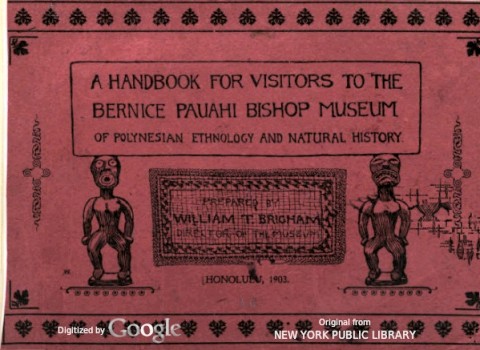
surfresearch.com.au
bishop museum : surf boards, 1903
bishop museum : surf boards, 1903
| home | catalogue | history | references | appendix |
 |
surfresearch.com.au
bishop museum : surf boards, 1903 |
|
Surf Swimming
(Hee-Nalu)
The surf board was usually of koa, nearly flat with slightly convex surfaces, rounded at one end, slightly narrowing toward the stern where it was cut square. Sometimes the papa hee nalu was made of the very light a williwilli and then was narrow. In size they varied from three to eighteen feet in length, and from Page 83 eight to twenty inches in width, but some of the ancient boards are said to have been four fathoms long! The largest in this Museum stand in the porch, Nos. 297, 298, and are so heavy that they require two men to move them, the smallest for children are on the ceiling of this alcove. The finest model is No. 6809 on the ceiling of V. The surf riders swam out to sea as far as the kalana or place where the high rollers follow each other in quick succession, and there mounted a high wave and rode on it until near the beach in the hae where the water was smoother; the first one arriving at the hae won the race. Standing on the larger boards as they shot in was by no means uncommon. Men and women both took part in this delightful past time, which now has a sort of revival among the foreign youth and visitors to our beaches. |
 Fig, 39. SURF BOARD |
|
Bernice Pauahi Bishop Museum of Polynesian Ethnology and Natural History; Prepared by William T. Brigham, director Honolulu, 1903. Hathi Trust https://hdl.handle.net/2027/nyp.33433082249669 |
 |

| home | catalogue | history | references | appendix |